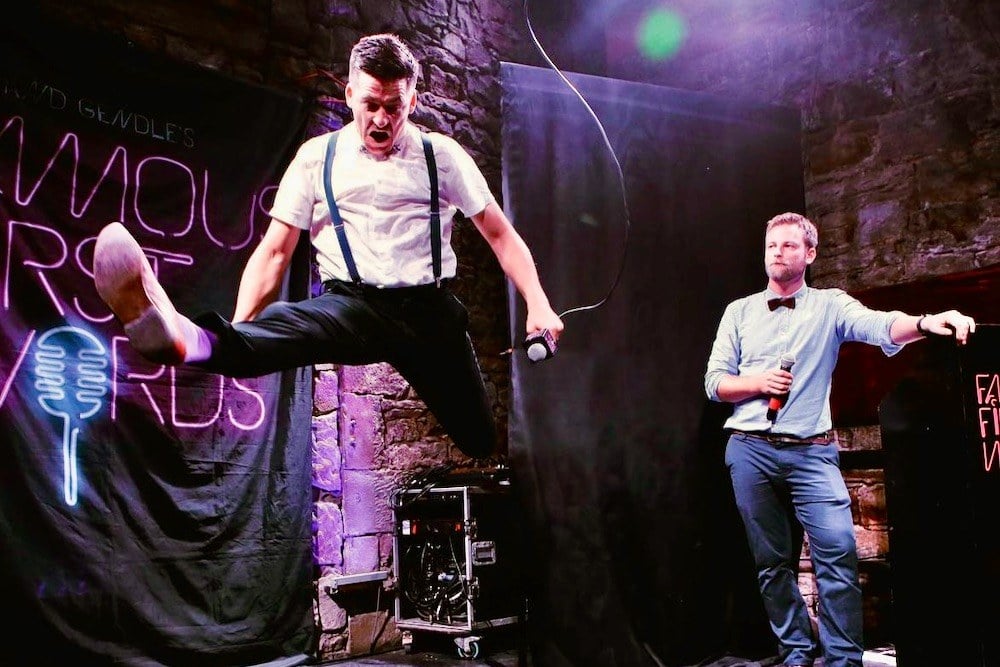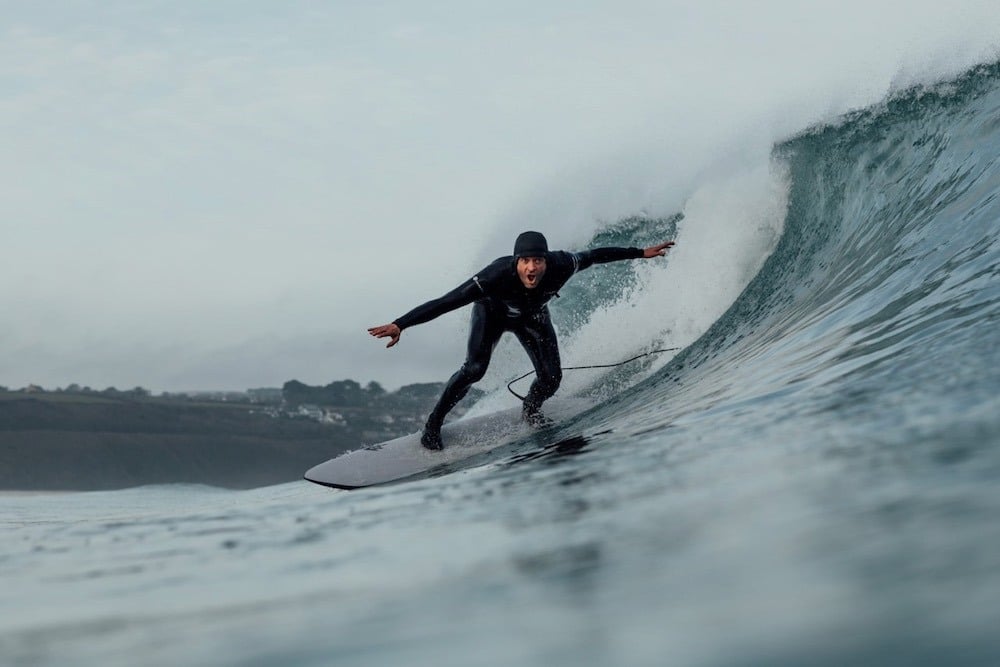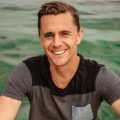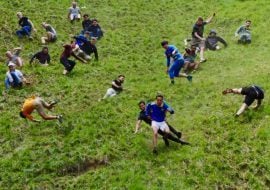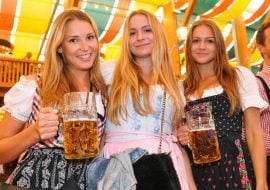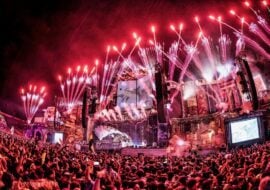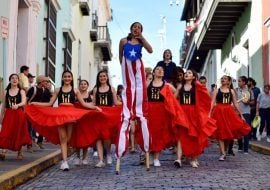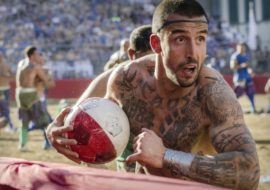Lifestyle Design: Carl Paoli


Episode 7: Podcast with Carl Paoli, from elite gymnast to maximizing sports and life performance
In this episode Oli Russell-Cowan chats to his childhood friend Carl Paoli. Oli remembers Carl as an elite gymnast with a passion for action sports. Carl would run down the beach doing 10 backflips in a row. The love of sport and fitness shaped Carl’s personality. Through determination and hard work, he arrived at who he is today: Helping others to improve their lives through movement, language, philosophy, and ideal lifestyles. He is the founder of Freestyle and has written the New York Times Best Seller Book FREESTYLE.
In their conversation Carl dives deep on how physical movement benefits the brain and how fitness is a state of being yourself.
The main takeaway of the chat was that movement helps you to focus. When you know your purpose the movement is an enabler in the execution of achieving your goals.
‘It didn’t take long to realize that what I was learning through gymnastics and my training was translating into school. I was feeling more confident. I stopped doing homework after the sixth grade because I didn’t have to, I could just memorize things. I could put in very focused effort into my studies.’
Listen to the podcast:
Dive in and listen to this episode on Apple Podcast and Spotify.

Read the transcript:
Rad Season: Hi guys, it’s Oli from Rad Season. I’m excited to be joined today by my childhood friend Carl Paoli. I met Carl quite a few years ago now when we were kids growing up in Spain. Carl went on to become an elite gym gymnast and was on the national Spanish circuit for about 15 years.
Following that he then went into coaching, training and mentoring thousands of people through movement and then more recently lifestyle. In 2014 he released a New York Times bestselling book called FREE+STYLE.
Carl, great to have you on the show.
Carl Paoli: It’s great to be here. I feel very important all of a sudden with that reading of a bio.
Oli: Where are you at the moment?
Carl: I’m currently in Central California in a place called Fresno. We left San Francisco exactly 87 days ago today but who’s counting. We are here to shelter in place while the pandemic is happening just because we have more space here. We could let the dog out and live a more normal life during this strange time that we’re going through.
I thought we were going to be back in the city maybe 30 days ago, and we’re still here and I’m hoping that around June 15, we’ll get new information so we can start transitioning back to the city and then wherever that takes us.
Oli: So is it still up in the air at the moment? You don’t really know when you guys are going to be heading back?
Carl: We don’t know. I think as of right now, the plan, which is ever-changing, is to head back to ours towards the end of this month. Then see what happens after that.
The goal right now is to be as productive as we can to minimize our stress levels in terms of day to day household management, so to speak. To be able to focus on that which moves the needle, whether it’s in our work or it’s in our family relationships. So everything is up in the air. We’re trying to choose the path that allows us to make the biggest impact with the least amount of stress on our bodies and our minds at the moment.
Oli: It’s a crazy time, with everything going on. I’d love to take it back to when we met. One of the main memories I have of you is in a place called Mil Palmeras in Spain. I remember you were running along the beach once, and you’re just doing all these backflips. I’m like, Who is this guy? What’s going on here? You were really into gymnastics. We became friends and found out that you’re putting hours into this. It wasn’t something like, okay, you know, I’m going to do a couple of flips on the beach. This was something that was a daily practice. What motivated you at such a young age?
Gymnastics

Carl: So when you and I met, I think we were six years old. That’s when I got into gymnastics and then we would meet over the summers when you would come back down to Spain for summer vacation.
I had started doing gymnastics as part of an after school program. Although I was dedicating a lot of time then I wasn’t full-time training. But it was around the age of nine or so when I got brought into this club, which was a higher level team that I realized. Oh yeah, this is the thing that I want to do. It just has the path to what, in my head at that age, could be seen as greatness.
One of the images was one of the coaches that eventually I got to work with. His name is Alberto Montesinos. He was doing an Iron Cross in an L sit position at the Olympics in Seoul, South Korea. I was hooked.
“That’s where I want to go. I want to go to Seoul, South Korea, and compete in the Olympics.”
That’s what just kept me coming back. Then it didn’t take long to realize that what I was learning through gymnastics and my training was translating into school. I was feeling more confident. I stopped doing homework after the sixth grade because I didn’t have to, I could just memorize things. I could put in very focused effort into my studies. I started getting stronger around the age of 13, 14, where I could do things that other people could no. So it was just a very impactful journey to go through. And it was all about the translation.
The problem arrived when I was 16, 17. When there were two things happening. One, I was starting to see that my friends were going out and they were spending most of their time hanging out, and I was always training. I wondered, why can’t I participate in something like that.
The other side was that I was starting to get some injuries. Those two things combined started to rock my boat a little bit, but I stayed on the course because I realized that I wasn’t interested in going out. I wasn’t interested in drinking, I wasn’t interested in partying. I was interested in girls but I just didn’t want to have that night scene. I didn’t need that social scene. So I created a very small group of friends that was very intimate, very innocent, which allowed me to keep coming back to gymnastics.
The problem became the physical stuff. I started having injuries. What I know now is that those injuries were not due to poor physical practice, but rather a poor mental practice.

Studying environmental science
Oli: Awesome. Where did it go from there? You were studying at University in Spain. Is that right?
Carl: That’s right. So actually, a friend of my sisters came to visit us and I remember him arriving in his truck. He had all these windsurf boards. He had all this cool equipment. He started talking to us about snowboarding, and how he lived in Tarifa for the longest time, and that’s where he was windsurfing, and he studied environmental science and he worked on this project where he got on a boat and he went from the US all the way to Spain. He was working with NASA technology and putting in fiber optic cables into the ground floor of the Atlantic. I was like, ‘Oh my God, that’s what I want to do.’ That’s who I want to be. So that’s why I decided I’m studying environmental science. Because of this guy.
I was gonna snowboard, and I was gonna be on a boat, working with robots and sending rockets up into the sky, which I had no clue what I was talking about, but it sounded really cool. So that’s how I got into environmental science. And the realization was on the first week of environmental science it was that this wide-open field, where you could go in any direction you wanted, and there was dissonance from the beginning for a few reasons.
The first one was that they told us that the future is in genetic engineering. And I was like, ‘okay, genetic engineering, let’s do this. I’m like, I’m the future’. The other side was that they explained in certain subjects that we were studying that the planet itself is an organism. We, the animals and the vegetation are what’s alive on the planet, but it’s not the individuals but rather the collective.
So it’s extremely important that when we’re studying ecology, or we’re working on implementing a new policy or ways of practicing for different organizations that environmental awareness is rooted in self-awareness. This sounded really interesting, but I just couldn’t connect it with what they were also saying about the future being genetic engineering when a lot of the genetic engineering was the problem that we were fighting in the first place. It’s like GMOs. Okay, that’s bad. But let’s study genetic engineering and let’s start, you know, genetically modifying crops. I couldn’t connect the dots.
That being said what environmental science did for me was it solidified the importance of having a practice that develops a greater level of self-awareness, and that we have a greater understanding of how the mechanics behind the awareness work, which can be a genetic expression, epigenetics. Now we understand that this is something that is important and that we are influenced by our environment.
So is this like never-ending inward cycle of information, movement and development that each one of us plays a vital role in and that we can expect to impact us in various ways. Without being too long-winded, one of the things that I realized was that there were campaigns out there. For example, there was a group of surfers that I met and I forget who they were working with right now. But it was a group of surfers that were traveling with a group of scientists through Mexico surfing and teaching coastal and ocean sustainability.
I was very interested in doing something like that. And that led me to go to Singapore for a little bit to study at the National University of Singapore where I was in the marine biology lab there. Eventually, that brought me to the US.
Oli: You were wakeboarding quite a bit over there.
Carl: Yeah, that’s one of the things that I loved. I loved the wakeboarding side of things. That was fun because it allowed me to be on the boat, which was my dream. It allowed me to have a board, which is something I love doing. As a kid, I was also inspired by you and watching Sal Maskela, who you had on the show recently.
I’ve been influenced by these things and every single one of them although I haven’t pursued them to a very deep place like for example, wakeboarding. It was enough exposure at a high level that it’s affected the way that I think and do things.
Oli: From there was that when you thought, okay, here is a bit of a change in career, so to speak? I’m going to go back into movement and kind of almost pick up where I left off?
Coaching Gymnastics, Fitness and Movement

Carl: I realized when I moved to the US in 2004 that in marine biology, there was zero money. I immediately had to get a side job, a second job. And that second job was coaching gymnastics to a group of boys who were non-competitive. That’s when I realized that I had something to offer in the field, not only of gymnastics but fitness.
That’s how I became a personal trainer. I remember that my dad sent me an article when I was 22. It said that personal trainers are making $110,000 a year. I was like, ‘what, $110,000 a year? I’m going into personal training.’
This may sound superficial, but I was very keen on being independent. I was very keen on having enough financial resources that I could continue to build. I was very keen on understanding what business development meant. I’ve always been fascinated by the question ‘What is money?’ and ‘Why is it either taboo, something that makes us get lost and lose track of our own self-development?’.
I was very curious about making money. I became curious and became a personal trainer.

They weren’t adding value, they were just presenting value. They were scaling by hoping that people would not come through and drop off. That is how gyms make money when they sell memberships.
CrossFit
But thankfully, I crossed paths with CrossFit. It led to a new way of practicing fitness and shows how the business can be run differently. On top of that, there was media associated with it, which I was very keen on exploring. I always wanted to be a presenter or host, or someone who had somewhat of a media presence. That really just escalated and led to me becoming somewhat of a reference in the fitness world by teaching gymnastics, applied to, in this case, the CrossFit methodology.
It’s interesting to look back now 10, 11, 12 years since that time, and see how things have changed.
Especially in the current climate that we’re living in, where we’re not only living through a pandemic, but the Black Lives Matter movement is really coming into effect. Unfortunately, the CrossFit CEO and Founder has made some pretty insensitive remarks.

This has now caused a big tipping point where CrossFit as a brand and organization stands and where we’re going next.
Oli: From past experience and knowledge within the industry within fitness, where do you see it going from here?
Carl: Well, I remember when I first took my CrossFit level one, which is the certification that they offer for new CrossFit trainers. I took it in 2009 and I remember the first day of showing up there at the course. They asked, ‘Do you guys know what the definition of fitness is’?
Supposedly they were 50 fitness professionals there, and nobody had a definition. And they gave us a definition, which was, ‘increased work capacity across broad time and modal domains’, very technical. But basically what it means is that it’s the individual that’s capable of doing everything and anything across different periods of time. I thought that it’s interesting to have a definition of what you’re doing is important. And I realized that I had to start defining who I was within that community.
Now 12 years later, I’ve been thinking about fitness beyond physical movement or physical practice. What I’ve come to realize is what fitness really is. If you break it down, it is a quality or a state and to be fit. It is beyond being able to pass on your genes to the next generation. It is to have a standard that allows you to meet a purpose.

So the question we must ask ourselves right now is, what is our purpose and then fitness? That’s where we need to start. What is our purpose as fitness practitioners?
Lifestyle Design
Oli: When did you think about moving over from movement training into transitioning to more lifestyle design?
Carl: I was teaching a seminar in 2011 in London. At the end of the seminar, I felt compelled to share a personal story. The story was of me having this dream of making it to the Olympics as a kid of me standing on the podium looking around having all the flashing lights and people celebrating me getting the flowers, you know, the whole thing, the medal.
I explained that I was really disappointed in myself at the age of 19, when I had decided to leave gymnastics. That dream that I had, would never be accomplished. And for a long time, I was grieving the loss of gymnastics and the loss of hitting that milestone of standing on the podium. As I got older, what ended up happening was, that I realized that the reason I wanted to stand on that podium was not only to prove to myself that I could do it, but for what was going to happen next. I was going to step off of the podium, I was going to go backstage, behind the scenes to the locker rooms I would celebrate with my friends and with my coaches. I would be able to go home and celebrate with family and then use that as a platform to do the next thing. That’s when I realized it.

That’s when I started practicing. Seeing every moment of clarity, every small achievement, every small accomplishment as big as achieving the winning of the Olympics. Not for the fact of just celebrating that I won the Olympics. Achieve something, accomplish something or check the box but for the reason that comes behind it, which is stepping off that victory, stepping off that accomplishment.
Celebrating with friends and family and what that celebration really looks like is in sharing what you’ve learned. It is in bringing together that knowledge and creating a new paradigm.
I shared this story at the seminar because I wanted people to realize that even if they had come into the seminar and felt a little confused because the material that I taught was maybe a little far out there and maybe not what they were expecting, that that’s okay. That’s simply a vehicle for them to start to be a little bit more introspective, and to expand their knowledge.
If they had come to the seminar and they had felt inspired that they could use the inspiration as fuel to keep pushing, but the most important part was the insight. If they had achieved any insight or received anything that was clear to them that they could use. They had to treat that as a victory and then go out and share that with other people.
What I said at that moment was, ‘When you go out and share this, make sure you share it with your own voice, as if you had come up with it, as if you had figured it out.’ ‘Don’t say Carl said at the freestyle seminar that if you do this, this and this, this will happen.’ Because if you say that what you’re doing is you’re diminishing the value. People don’t know who Carl is. They don’t know what freestyle is. They know who you are. So you need to take ownership of this information. And at that moment, I realized that I was doing something that I really felt connected to.
And right afterward, a few coaches that I knew and I looked up to, came up to me and said, ‘Hey, Carl, never say anything like that, again.’. ‘People don’t care about that stuff. They don’t want to hear that. They just want the information.’ That’s when I realized Okay, as someone who’s a little bit of a rebel, I’m going to do exactly that. Until that’s proven wrong to me. And that’s how I got into more of the going beyond movement practice.
Traveling
Oli: When we last met was over in Australia. You were traveling quite a bit back then. And you were like, okay, there’s one thing I’m going to do is to try and not travel as much. With the travel restrictions, how are you adapting your business? How has that changed everything?
Carl: Well, a couple of things have happened when I saw you in Manly and we hung out that day. I told you how I’m going to try to travel less. And although I told you that day, I got home and I looked at my calendar and I was continuing to book more. And July 9 of 2019 I went on Instagram and I said, accountability post. This year, I’ve traveled for 182 days. Next year, I want to cut this down by 50%. And out of the 50% of the travel, I want 20% of it to be work 30% of it to be fun and visiting family and friends. Fast forward to September of 2019. I realized, man, I’m feeling so burnt out. I just can’t do it. I need to just quit basically. So November 9 of 2019, I did my last seminar. That was a movement seminar and I said, Okay, I’m not going to do it anymore. I’m done.
That was the last one I did. And then all of a sudden 2020 hit and I started getting you know, ants in my pants, like, oh, man, I have to do something, I have to start, you know, planning a workshop or a seminar I have to teach. I was just like, I have to do something.
I was supposed to go to China to give a lecture because a publishing house there was translating my book, and they want to have me talk to their students for a weekend. That got canceled, not for the pandemic, but rather because it didn’t have enough demand. I was like, Oh, interesting. My demand in the physical world was not there. My ego was starting to get a little rocked. But then, literally a week later, the pandemic began.
China really started getting hit. And because that trip was canceled, my sister messaged me and said, ‘Hey, do you want to just come to Singapore instead and hang out with us?’ I was like, yeah, I’ll come out. And I went to Singapore. I taught a workshop there while I was at it, of course.
That’s when the pandemic started hitting. And I was like, this is fine. It’s not going to come to the US until I got on the plane to come home. I realized that every passenger on that plane was nervous. And what gave that away was, we came into the plane, we started sitting down in the plane, and then all of a sudden one person pulled out a Lysol wipe to wipe their chair off. And then everybody stood up and out of their bags they started pulling out Lysol wipes. They started using hand sanitizer, they put a mask on and I was like, Oh damn, people are scared. Something is happening here.
When we landed in San Francisco, there were people from that plane that said that they were going to quarantine themselves. And I was like, what are you talking about quarantine yourself. So I thought do I need to quarantine myself and I remember getting off the plane and my wife picked me up, Tanya, I said, I’m not going to kiss you right now. I’m not gonna hug you right now. I think we should keep a little bit of distance for a few days. I called my gym, the owner of the gym that I go and train that and I said, Hey, I was just in Singapore. Do you feel comfortable with me coming to the gym? He’s like no problem.
That was the beginning. I realized Okay, that something’s gonna happen here and we in the US are completely unaware of it at the moment or believe it’s not coming. So for me, it started with the pandemic on February 7.
That’s when I realized, okay, we’re in this for the long haul. This is going to take a while. So that was the day I said, 2020 let it be whatever it’s gonna be. Don’t worry about trying to book travel, and worry about trying to create seminars. Just be a resource for value and support for as many people as you can be during this time. And do it with an open heart, meaning that you’re going to mess up and there there are mistakes you’re going to make. Those mistakes will be less important than the impact that you can make. Make a positive impact!
So I’ve been just on the phone all day every day working with people, either just helping them process information, coming up with strategic ideas on how to either keep their gyms going or just transition, pivot jobs.
Lifestyle Design Workshops

I’ve been doing some paid gigs by doing online lifestyle design workshops which are intended for identifying your mission, your purpose, and how you can adapt it into whatever you choose to do.
I’ve also been working with an organization called Accer Sports and helping them reopen the doors when it’s safe to do so. They’re based in San Francisco. So yeah, that’s what I’m currently doing. And I’m talking to you too.
Advice
Oli: So you’ve been pretty busy. Any advice that you would give to anyone within the fitness industry or just in general people that are trying to deal with this?
Carl: I think that it’s important to think about anything that we’re doing through the lens of fitness. It is, once again, our ability to operate or perform at a standard that allows us to meet a purpose.
So it’s first to ask yourself, what is it that you want to do and what do you want to feel while you’re doing it? In other words, you can ask yourself ‘Who are you?’ or at least ‘Who do you think you are’? What are you currently doing? Who are you doing it for? What do they need? When you help them get
their needs met, what kind of impact does that make in their lives?
By simply asking yourself some simple questions like that, what ends up happening is that you start to change not what you’re thinking but how you’re thinking about it. When you do that, what ends up happening is that your behaviors start to translate into a growth in your business or higher visibility in your brand, your brand being your philosophy. It allows for people to see you for who you are, and it allows for people to choose whether to move towards you, away from you, or against you.
Black Lives Matter Movement
This is something that is very clear like right now with the Black Lives Matter movement. When one expresses where they stand, you will get people moving towards you. Yes, I’m with you or against you.
No, that’s not what it is, it’s this or that. Or away from you, meaning they just silence themselves and distance themselves. That gives you a certain peace of mind. Because you’ve chosen and now you’re not taking whatever actions people around you are choosing to take personally that allows you to continue to unfold.
I think this is the most important time for us to do this, not just individually but also collectively and to do it with the awareness that potentially you are wrong. And that’s cool too.
Oli: What are you focusing on lifestyle design later in the year and next year?
Carl: I’m not making any plans, so to speak, but I am looking at the next two years. What I intend to do is to continue to be a student of self-development with the intention of helping people become more conscious and more awake. In other words, be a participant and bringing us all to a place of planetary coherence, so to speak, or in other words, where what’s in your head and in your heart and in your body is in alignment.
So it’s not like I’m thinking this one thing, but my heart is somewhere else. And I feel like shit. I want people to be in alignment. And to do that through a practice of movement, which can be as simple as encouraging people to go for a surf or go snowboarding or skate or hand balancing or training of some sort, just running, mountain biking, whatever it may be, be active, but use that activity as a bridge to getting to know yourself.
So that’s my intention to be a student of that game. Where I thrive in a place or a position of leadership where I’m either working with a group of people, to bring them together or in a place where I am communicating ways or strategies for deploying a vision and putting all the little action steps into place.
With the intention of experimenting, what works, and what doesn’t work. In other words, in creating very quick progression and adaptation.
Branding
This sometimes is presented through branding, and branding is not what a lot of people think it is, which is just an aesthetic element.

This is something that in business development gets so lost and ends up becoming a big hole in their ability to scale and grow and to make a positive impact because people simply don’t have something to anchor themselves to. When they anchor themselves to something that doesn’t have a brand or a philosophy that’s clearly expressed, it becomes a very fragile ground to stand on.
I think more than ever right now that the world is asking us for strong communication of brands, a strong communication of philosophy and to notice that it’s in that philosophy and what we stand for where a firm ground can be developed and thus take the steps towards a more just planet, a more equal planet, a planet where we’re actually working together and we can accept and respect all differences without getting lost in them.
Oli: If anyone wants to get hold of you what’s the best way?
Carl: The best way to do that is simply looking me up online just google Carl Paoli you can find me. You can email me or contact me on Instagram or Twitter, YouTube, wherever you go, LinkedIn. I’m everywhere and nowhere at the same time.
Oli: Thanks a lot for your time, man. It’s great chatting.
Carl: Dude, thank you for having me.
Watch the video:
Photo Credit: Carl Paoli
Missed the last episodes? Check them out!
Episode 4: Weird Sports – Sol Neelman
Episode 5: Storytelling – Sal Masekela
Episode 6: Trail Running – Edward Chapman
Have you subscribed to our Newsletter or Podcast? Listen to us on Apple Podcast and Spotify and follow us on Facebook, Instagram Twitter and YouTube.
Accommodation near San Francisco, California, USA
Rad Season is providing you with rentals and hotels at the lowest prices available online. Book your stay near San Francisco, California, USA using the map below!
